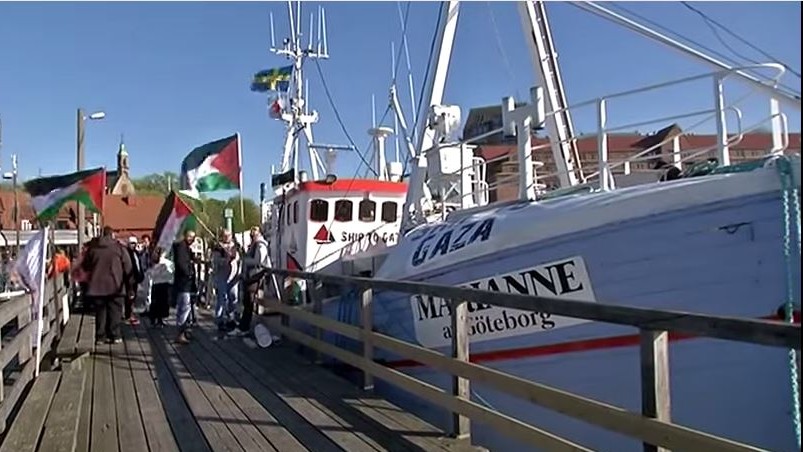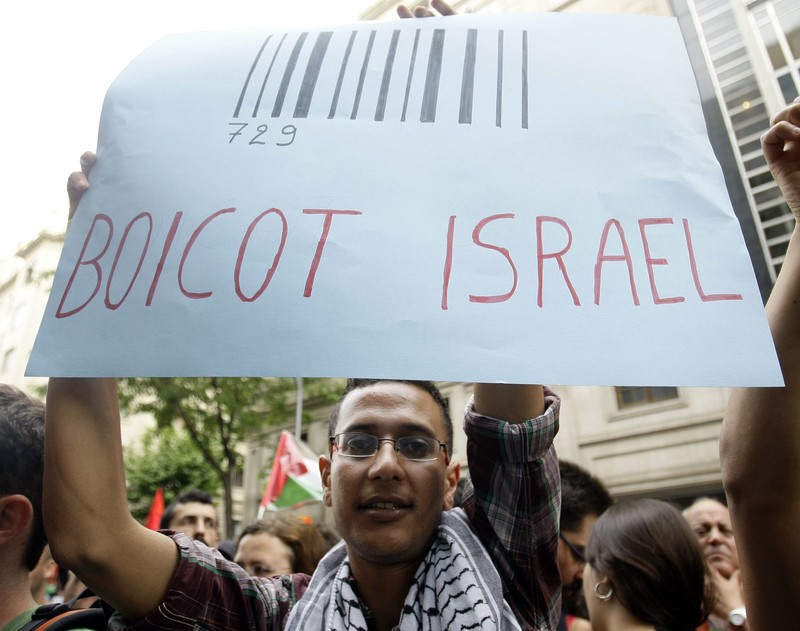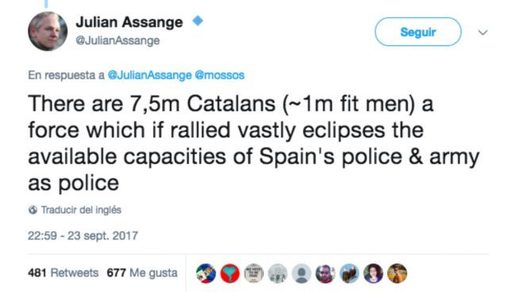Spanish stocks tumbled, with the IBEX index sliding into a 10% correction, following an overnight report that Catalan leader Puigdemont was set to make a statement at 9 p.m. (1900 GMT) on Wednesday, after an all-party committee of the region's parliament meets to agree a date for a plenary session on independence. That concluded moments ago and CUP, the pro-secession party that is a majority in the Catalan parliament, has announced it will declared independence from Spain in plenary session on Monday,
El Pais reports.
As
reported last night, Catalan President Carles Puigdemont told the BBC that his government would ask the region's parliament to declare independence after tallying votes from last weekend's referendum, which Madrid says was illegal.
"This will probably finish once we get all the votes in from abroad at the end of the week and therefore we shall probably act over the weekend or early next week," he said in remarks published on Wednesday.
Puigdemont’s comments
came after Spain’s King Felipe VI accused secessionist leaders on Tuesday of shattering democratic principles and dividing Catalan society, as tens of thousands protested against a violent police crackdown on Sunday’s vote. The Catalan leader is due to make a statement at 9 p.m. (1900 GMT) on Wednesday,
during which he is expected to announce that Catalonia will formally announce independence on Monday.
Spain has been rocked by the Catalan vote and the Spanish police response to it, which saw batons and rubber bullets used to prevent people voting. Hundreds were injured, in scenes that brought international condemnation.
And while the constitutional crisis in Spain,
the euro zone's fourth-biggest economy, has hit Spanish stocks and bonds, raising Madrid's borrowing costs, it has so far failed to have an adverse impact on the broader European market, or the Euro which has remained relatively steady in recent days. As shares in Spain’s big lenders fell on Wednesday, Economy Minister Luis de Guindos tried to reassure investors and customers.
“Catalan banks are Spanish banks and European banks are solid and their clients have nothing to fear,”
he said on the sidelines of a conference in Madrid.
According to Reuters, Caixabank, Catalonia’s largest lender, said in a memo to employees late on
Tuesday that its only objective was to “protect clients’, shareholders’ and employees’ interests”.
Spanish Prime Minister Mariano Rajoy, a conservative who has taken a hard line on the issue, faces a huge challenge to see off Catalan independence without further unrest. Rajoy has been fighting to maintain control after 2.3 million Catalans voted in Sunday’s makeshift referendum and the regional police force ignored orders to prevent the ballot. Preparing for launching the "nuclear option", Bloomberg added that Rajoy is mulling if, and when, to use Article 155 of the Spanish Constitution to take direct control from the administration in Barcelona.
It is unclear what Madrid's response will be if, or when, Catalonia follows through on its threat to declare independence. One option is for Madrid to challenge the declaration at the
Constitutional Court, which will immediately rule against it. Next, if the Catalan government ignores the ruling, Madrid is likely to trigger article 155 of the Constitution to strip out Catalonia’s autonomy and to call for regional elections. This would be a
risk-negatie scenario, and one which Citi said "could trigger a civil rebellion, with possible
wide disruptions and violent confrontations.
A move by the regional police force to ally with the pro-independence parties could significantly escalate the situation."




